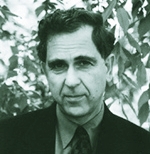
A new column of mine proposing a Young America program appears today in Campus Progress, the online student magazine of the Center for American Progress. The column draws on material from the last chapter of Freedom’s Power and argues that social policy ought to focus resources on the young. As the GI bill provided a tremendous boost to American society after World War II by enabling young veterans and their families to obtain higher education, job training, health care, and mortgages, so we ought today to help the young invest in their own—and thereby the nation’s—future.
The proposal for a Young America program builds on ideas that have been circulating for a while calling for new policies benefiting children. The difference here is more of an emphasis on young adults.
Fifteen years ago, in January 1992, I gave a speech to the National Academy of Social Insurance called “A New Deal for the Young” (a phrase I’ve continued to use). The speech was buried in the academy’s annual conference proceedings, and I didn’t do anything further with it because I was soon preoccupied with health policy in the Clinton administration.
But I’ve now posted “A New Deal for the Young” on my Princeton web site because nearly all of it continues to be relevant.
The key historical point is that the original New Deal and other programs of that era assumed that the traditional family would continue to be the predominant form and did not anticipate the radically different social world we inhabit today. Moreover, the primary legacy of the New Deal, particularly in a fiscal sense, has been the old-age pension system of Social Security as well as the Medicare program added to it in 1965.
After the mid-1960s, federal social spending shifted markedly toward the aged. Children and young adults have been relatively ill-served. As I point out in the column:
A variety of social indicators show the results. Just this past month, UNICEF brought together data on poverty rates, health, social behavior, families, and peer relationships in a study of the well-being of children and adolescents in 21 rich countries. In the overall ranking, the United States came in next to last.
To remedy these failings, we should be doing more to improve early childhood education and other policies affecting young children. But we should also be thinking about their parents—and the young people who will be parents not long from now.
As I did 15 years ago, I continue to argue for basing at least some elements of such a policy in a “norm of reciprocity.” Rather than simply hand out benefits, we ought to make them contingent on one or another form of national service. Where benefits are earned, they have far more chance of being thought legitimate.
This analysis ties in with the general ideas of Freedom’s Power:
The premise of a Young America program would be the inclusive conception of freedom and power that are at the core of modern liberalism. An increasingly unequal America that exposes so many of its young to poverty and insecurity cannot be the strong and prosperous nation all Americans want it to be. Government can be the means for expanding the horizon of freedom, creating opportunity, and making a society both more powerful and more just. The world used to think of America as a country where the young had possibilities unmatched anywhere else. The United States could be that country again.
P.S. For reaction to the proposal, check out what Ganesh Sitaraman has to say at TPM Cafe: "This is a bold idea – and one that could do a lot for the next generation of Americans." There are also more comments there, pro and con.
Labels: American politics, related articles



1 Comments:
This sounds an awful lot like Kennedy's New Frontier. The focus is more on domestic issues, but the spirit is the same. In the hands of a skilled orator (another young Senator comes to mind), I think it would make for an incredibly persuasive pitch. Maybe even, once again, as the overarching theme to a Democratic National Convention acceptance speech? I would like to hear a few more specific policy proposals on this.
Post a Comment
Links to this post:
Create a Link
<< Home